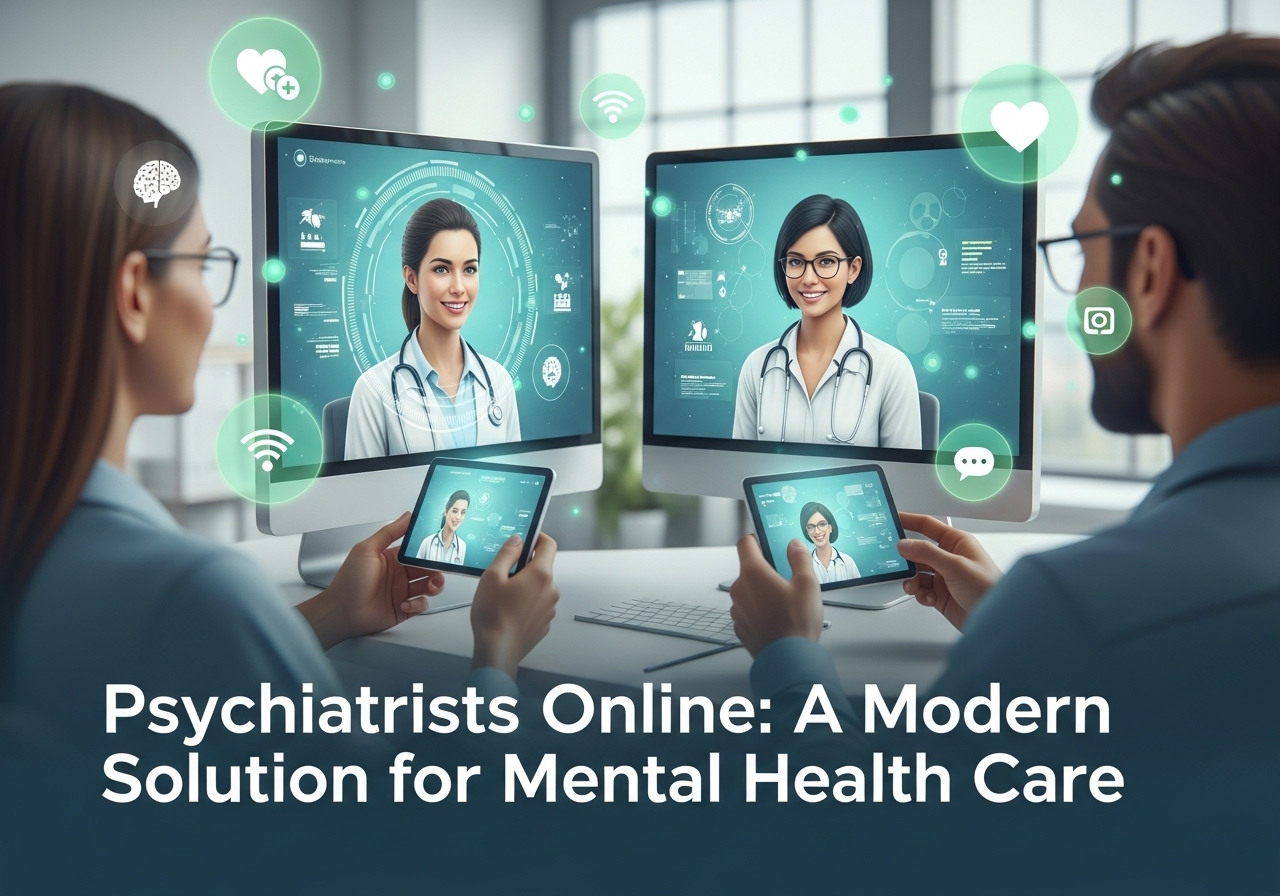Introduction: A New Era of Mental Health Care
In today’s world, conversations around mental health are finally receiving the attention they deserve. Stress, anxiety, depression, and other mental health conditions affect millions of people, but getting help is not always easy. Long waiting lists, busy schedules, or limited access to specialists often stop people from seeking support. Thankfully, technology has introduced a modern solution psychiatrists online.
Virtual psychiatry brings qualified medical professionals directly into people’s homes through secure video sessions. This approach removes many traditional barriers and ensures that individuals can get help without the challenges of commuting, taking time off work, or living near a major city.
Why Online Psychiatry Has Become So Popular
The growing demand for online psychiatric services is not just about convenience; it’s about necessity. Several factors have contributed to this shift:
- Accessibility: People in remote or rural areas now have the chance to consult with a psychiatrist without traveling long distances.
- Flexibility: Online appointments fit into busy schedules, allowing patients to receive care during evenings or weekends.
- Comfort: Many patients feel more relaxed opening up from the comfort of their own homes.
- Reduced Stigma: Some individuals hesitate to visit a clinic due to stigma. Online care provides a discreet way to access treatment.
- Faster Appointments: Waiting weeks or months for a psychiatrist can delay recovery. Online platforms often provide quicker scheduling.
The combination of accessibility and flexibility has made online psychiatry a trusted and growing option worldwide.
How Online Psychiatry Works
The process of meeting a psychiatrist online is simple, but many patients wonder what to expect. Here’s how it usually works:
- Initial Sign-Up: Patients register through a secure online platform or telehealth service.
- First Consultation: During the first session, the psychiatrist asks about symptoms, medical history, and goals for treatment.
- Treatment Plan: Based on the evaluation, the psychiatrist creates a personalized plan that may include therapy, medication, or a combination of both.
- Follow-Ups: Patients schedule regular check-ins to track progress, adjust medication, or discuss challenges.
Most platforms use encrypted systems to ensure privacy and confidentiality, meaning that online sessions are as safe as in-person visits.
Conditions Treated by Online Psychiatrists
Online psychiatrists are licensed professionals trained to treat a wide range of mental health conditions, including:
- Depression and mood disorders
- Anxiety, panic attacks, and phobias
- Post-traumatic stress disorder (PTSD)
- Bipolar disorder
- Attention-deficit/hyperactivity disorder (ADHD)
- Obsessive-compulsive disorder (OCD)
- Insomnia and other sleep-related problems
- Substance use disorders
- Stress and adjustment issues
Just like in-person psychiatrists, they can diagnose, prescribe medication, and provide ongoing support.
Benefits of Choosing an Online Psychiatrist
Patients who turn to virtual psychiatry often highlight several advantages:
- Convenience Without Compromise – Appointments can be scheduled around work, family, or school responsibilities.
- Expanded Options – Patients are not limited to local specialists and can find a psychiatrist who matches their exact needs.
- Continuity of Care – Whether traveling or relocating, patients can continue therapy with the same psychiatrist online.
- Affordability – Many online services are more cost-effective than in-person visits, and some are covered by insurance.
- Privacy and Comfort – Speaking from home often allows patients to share openly without fear of judgment.
These benefits have made online psychiatry a long-term solution for many individuals.
Are Online Psychiatrists Effective?
A common question patients have is whether online care is as effective as in-person visits. Research shows that virtual psychiatric treatment can be equally effective, especially for common conditions like anxiety and depression. The key factor is consistency and the quality of the psychiatrist, not the setting of the appointment.
Of course, certain situations—such as psychiatric emergencies or complex medical cases—may still require in-person evaluation. However, for the majority of patients, online psychiatry offers reliable, high-quality care.
Tips for Choosing the Right Online Psychiatrist
Not all services are the same, so it’s important to choose carefully. Consider these factors when selecting an online psychiatrist:
- Licensing and Credentials: Ensure the psychiatrist is board-certified and licensed in your state.
- Specialization: Look for someone experienced with your specific condition.
- Technology: Use platforms that are secure, HIPAA-compliant, and user-friendly.
- Insurance Coverage: Check if your insurance covers telepsychiatry.
- Patient Reviews: Feedback from other patients can provide insight into professionalism and care quality.
Taking time to research ensures that you find a psychiatrist who fits your needs and makes you feel comfortable.
What to Expect During Your First Online Appointment
The first online consultation usually lasts between 45 minutes to an hour. The psychiatrist will:
- Review your medical and personal history
- Ask about symptoms and concerns
- Discuss any current medications
- Explore lifestyle habits such as sleep, diet, and stress levels
- Suggest a treatment plan, which may include therapy, lifestyle adjustments, or prescriptions
This session is designed to build trust, set goals, and start a journey toward better mental health.
Breaking the Stigma Around Online Care
One of the biggest challenges in mental health treatment has always been stigma. Many people feel embarrassed or hesitant about reaching out for help. Online psychiatry is helping break these barriers by making care more accessible and discreet.
Mental health treatment is a sign of strength, not weakness. By choosing online psychiatry, patients take a proactive step toward healing and improving their overall quality of life.
Conclusion: The Future of Mental Health Is Online
Technology has changed the way we work, learn, and communicate—and now it is transforming mental health care. With psychiatrists online, professional support is closer and more accessible than ever before. Patients no longer have to wait months for an appointment, travel long distances, or face unnecessary stigma.
The future of psychiatry lies in a blend of traditional and virtual care, ensuring that everyone has access to the help they need, when they need it. For many, choosing online psychiatry is not just about convenience; it’s about reclaiming control of their mental health journey.



